Team Switzerland could celebrate both wins in Sunday’s Knock-Out Sprint finals, with Tino Polsini and Simona Aebersold fastest in the last international competition of the season.
A strong Max Peter Bejmer also secured the overall World Cup victory among the men after a second place in the final. Simona Aebersold was already sure of the overall victory before today’s race began, as her lead in the standings was over 100 points.
Challenging courses
Like the previous days at the World Cup finals in Uster, Switzerland, the arena was the same and Sunday offered quarterfinals, semifinals and finally the finals in the middle of the afternoon.
The best 36 men and women in Friday’s sprint qualified for the quarterfinals, which were chosen by heat selection on Saturday afternoon.
And the athletes were met by both challenging and intricate courses.
The quarter-final consisted of a three-way butterfly forking, while the semi-final featured runners’ choice, where the athletes had to choose between three different course designs.
In the quarter-final, profiles such as the newly crowned European champions in the KO Sprint and Sprint, respectively, August Mollén (SWE) and Mathias Barros-Vallet (FRA) and the women’s World Cup standings number two, Natalia Gemperle (SUI), were knocked out.
The semi-final eliminated runners such as Jonatan Gustafsson (SWE), Tomáš Křivda (CZE), Yannick Michiels (BEL), world champion Riccardo Rancan (SUI), Inka Nurminen (FIN) and Alva Sonesson (SWE).
Intricate final course
Then all that was missing was the final, which also featured a challenging course with forkings at the first control, a leg through an underground parking garage and several controls in buildings with artificial barriers and taping.
The women were first on the course, and Simona Aebersold quickly moved to the front of the field, which was within six seconds halfway through the course.
Many different route choices were made along the way, but the most decisive was the leg to the penultimate control, where Aebersold chose the fastest route, while Hanna Lundberg (SWE) took a longer one that cost time.
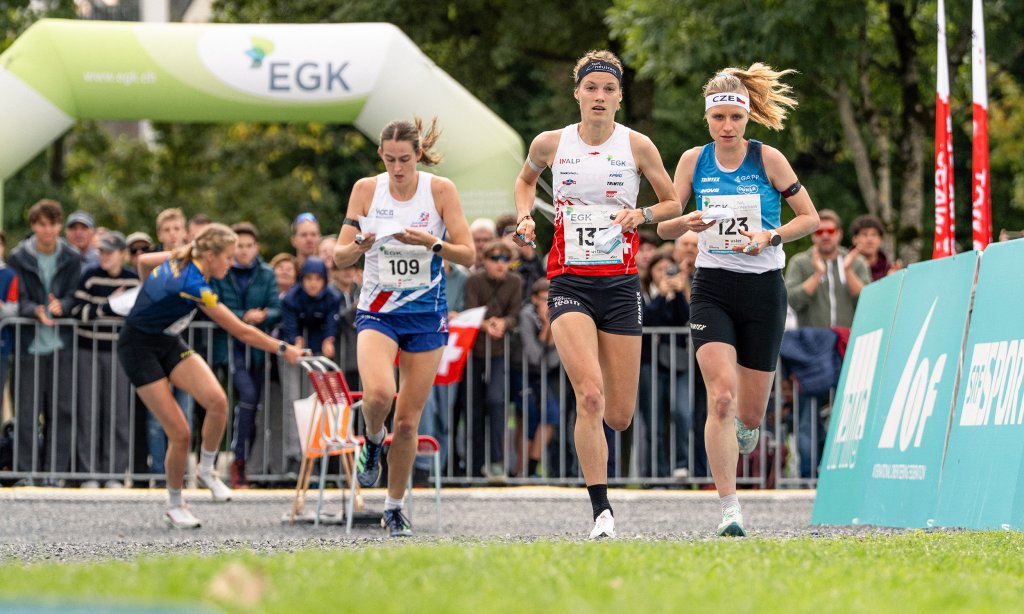
Aebersold, Rauturier, Molloy and Lundberg during the women’s final. Photo: Silvan Schletti
Therefore, Aebersold came first with a fast-running Grace Molloy (GBR) right behind her in second place – Molloy’s best international result. Tereza Rauturier (CZE) won the sprint for third place ahead of Pia Young Vik (NOR) and Cécile Calandry (FRA).
Exciting until the end
The men’s final was not only a competition for today’s win, but also a direct duel for the overall World Cup title because both Max Peter Bejmer and Kasper Fosser (NOR), who were nine points behind the Swede, had qualified.
And the final was at least as intense as the women’s and again the leg to the penultimate control was decisive.
Here, Tino Polsini (SUI) and Bejmer took the fastest route, taking them from the back half of the field all the way up to first and second place when they crossed the finish line – the first World Cup victory ever for Polsini.
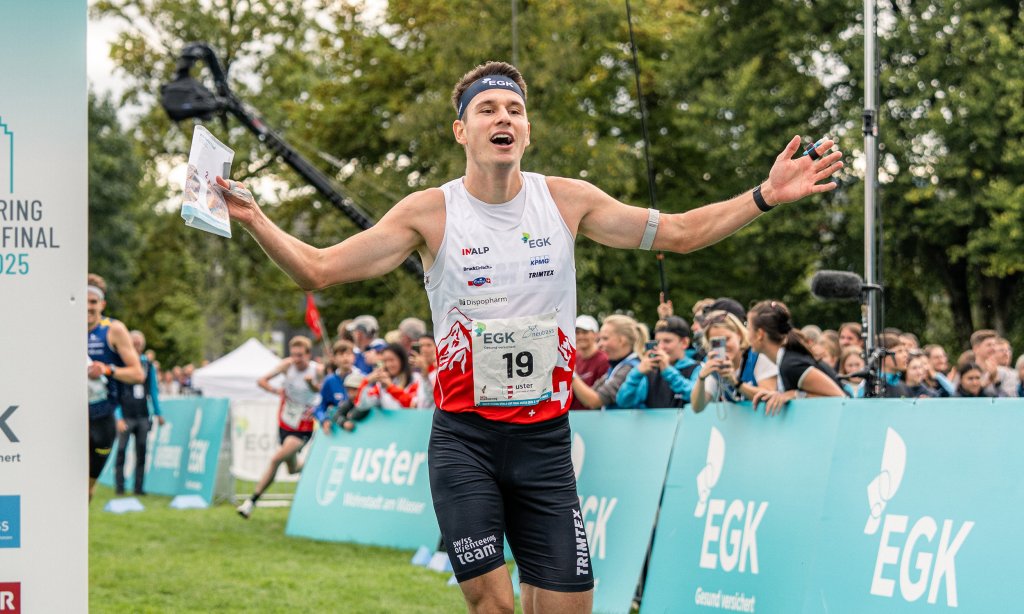

Tino Polsini celebrates his win. Photo: Silvan Schletti
Fabian Aebersold (SUI) raced into third place, while Matthias Kyburz (SUI) retired from a long and glorious elite career with a fourth place and a nice tribute immediately after the flower ceremony.
Final World Cup standings
Among the women, Pia Young Vik moved up to second place in the overall World Cup standings behind Simona Aebersold, while Cécile Calandry also took a step up to third place.
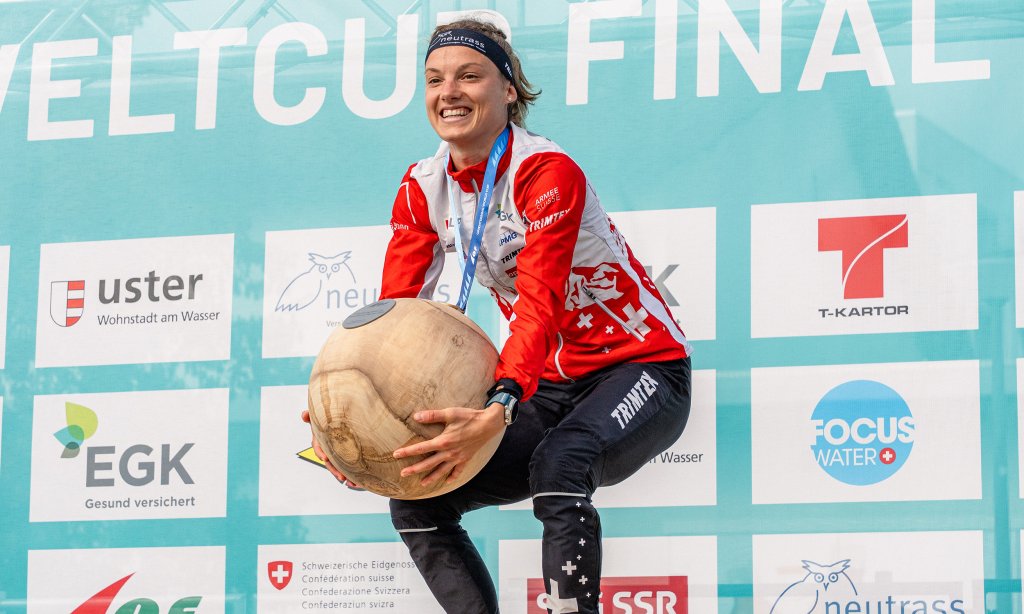

Simona Aebersold lifts the World Cup trophy for the second year in a row. Photo: Silvan Schletti
Behinds Bejmers first place and first overall World Cup-title, defending champion Kasper Fosser moved past Tomáš Křivda in the battle for second place.
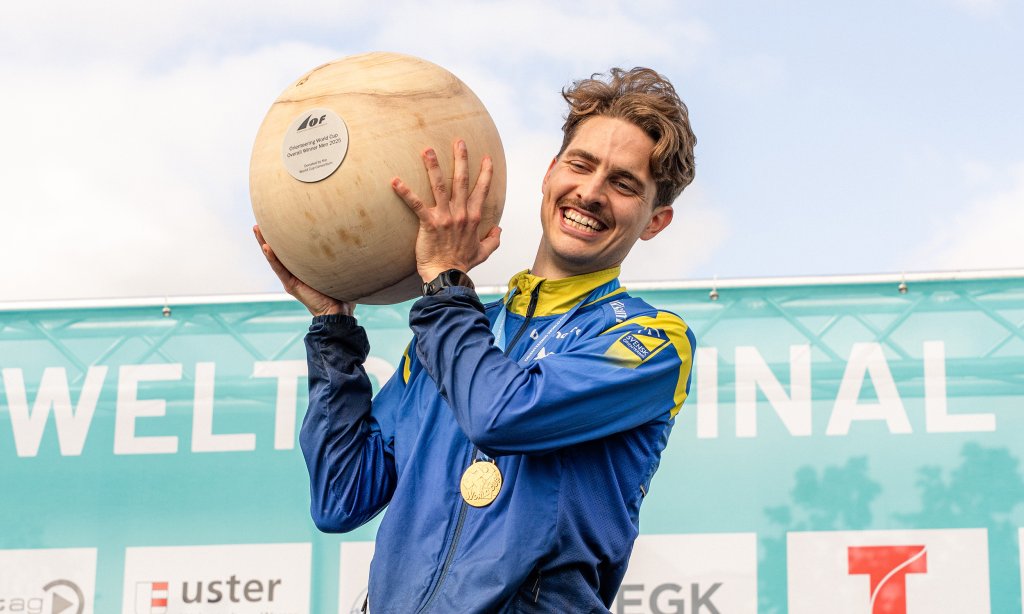

Max Peter Bejmer lifts the World Cup trophy for the first time. Photo: Silvan Schletti
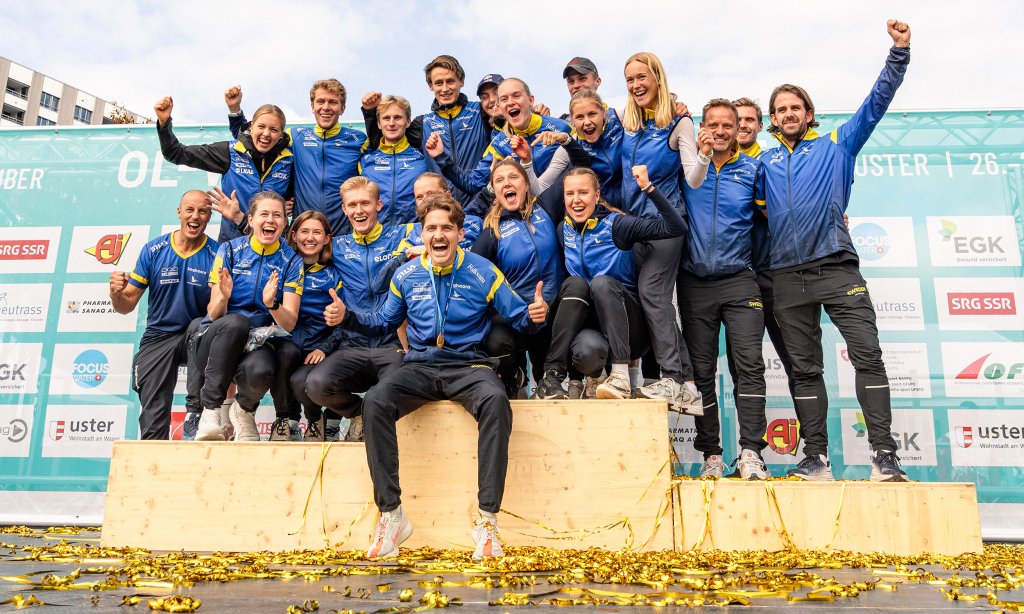

Sweden could celebrate the win in the Teams World Cup ahead of Switzerland, Norway and Finland. Photo: Silvan Schletti
Live results, GPS-tracking, maps and photos in IOF LIVE
After a solid celebration of the season, it’s time to look forward to next year’s Orienteering World Cup, which begins in Switzerland at the end of April and features four rounds in total, also taking the world’s best orienteers to Sweden, Czechia and Lithuania.
See the pre-bulletin here